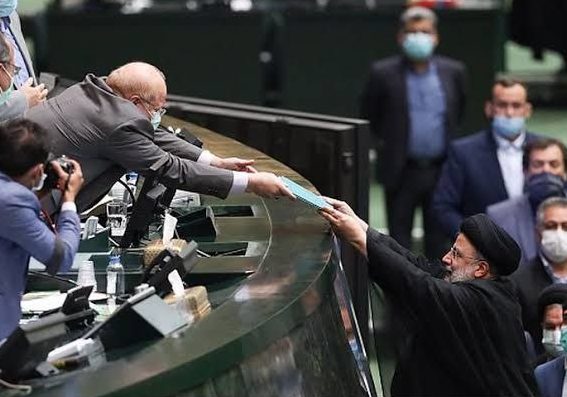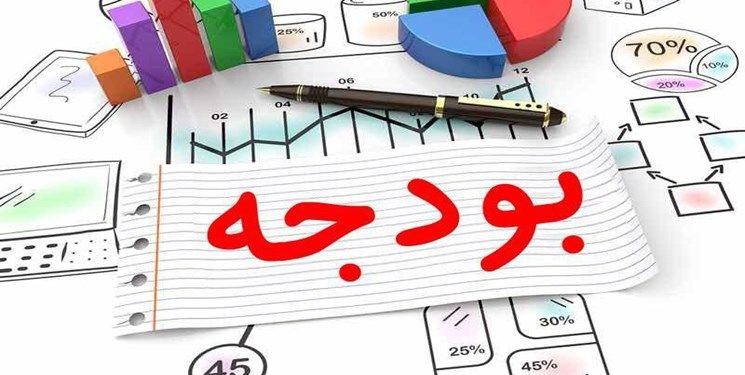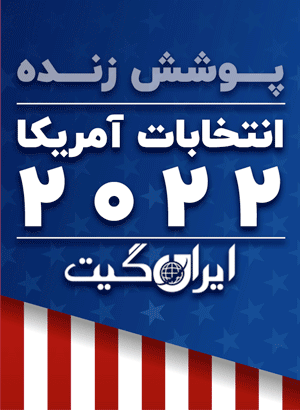The budget for the upcoming year exacerbates the challenges.
According to Iran Gate, the Washington Institute, the Iranian president’s budget for the upcoming year intends to reduce salaries and subsidies despite inflation. Meanwhile, the budget proposes a higher allocation for the Revolutionary Guards. In these circumstances, it seems that the government is avoiding the fundamental reforms that the Iranian economy needs.
On January 11th, President Ebrahim Raisi presented his budget proposal for the year 1402 to the parliament. This proposal is presented amidst the most severe protests that the Islamic Republic has faced since its establishment in 1979. This budget does not offer any economic green shoots for the people and there is no news of any structural reforms that can help curb inflation and strengthen growth.
In fact, the primary election in 2021 solidified the position of hardliners in all centers of power in Iran. Some expected a more cohesive power consolidation in foreign and domestic policy. Initially, it seemed that the main team had taken a very effective approach in importing foreign COVID-19 vaccines and suppressing the spread of the disease. However, hardline elites have been divided on other key issues such as reviving nuclear agreements and responding to anti-regime protests. Additionally, the chaotic implementation of reforms in the foreign exchange subsidy system in May led to an unprecedented increase in inflation.
The government could have used the budget process to create consensus on reducing economic pressures and implementing necessary reforms for economic stability. Since September, when widespread protests began and nuclear negotiations essentially failed, the Iranian rial has lost over 20% of its value against the dollar.
The government has used many of its usual tools to suppress the devaluation of the national currency, from arresting currency dealers to promising progress in nuclear negotiations. However, despite referring to the outflow of currency abroad and the dismissal of the central bank governor, the rial remains in a weak position.
Despite this crisis, the government has been unable to resolve these issues through constructive interaction with the parliament. Instead, it has focused more on engaging with parliament members who undoubtedly have their eyes on the 2024 elections. Raisi delivered the budget with a one-month delay, got involved in arguments, and it did not receive much public attention.
Overly optimistic income projections.
In a speech on January 10th to parliament members, Raisi announced that the main goals of the budget are financial discipline, liquidity management, inflation reduction, sustainable growth, efficiency, and justice. The total proposed budget of around $52 billion at the free market exchange rate represents a 42% increase compared to the previous budget and is likely to be in line with inflation. The International Monetary Fund expects it to reach 40%.
However, the budget is not sufficient to fully support government activities. Authorities often rely on additional financial methods, such as obligating banks to provide loans to specific groups at discounted rates. It seems that the government’s income expectations are overly optimistic.
According to state media reports, the government predicts that Iran will export 14 million barrels of oil per day at an average price of $85 per barrel, equivalent to natural gas.
But this prediction is unrealistic. In fact, Tehran made the same budget and export volume predictions last year and did not achieve the target.
Organizations like TankerTrackers and Vortexa have estimated their crude oil and gas condensates exports from January to November 2022. The government’s prediction also contradicts the estimate of the parliamentary research center, which predicts exports of around one million barrels per day.
This difference clearly reflects an overly optimistic assessment of the current conditions and a disregard for sanctions.
Energy market analysts and investment banks predict that the Brent crude oil price will range between $80 and $100 per barrel in 2023. Additionally, the exchange rate will be converted at 230,000 rials to the dollar, which is the same as last year’s value.
Iran is likely to reduce its issuance of bonds. The government’s budget predicts an increase of about 28% in bond sales, which is a lofty goal aimed at attracting investors in its auctions. Expectations for tax revenue have also been projected to increase by 5%.
The government’s poor performance in selling oil and bonds is likely to create a financial deficit in Iran’s central budget, which is not unprecedented. It is important to note that budget deficits also contribute to inflation, as the government relies on direct or indirect borrowing from the central bank to pay its bills.
Reducing salaries and increasing military expenses.
President Rouhani has proposed a mere 20% increase in government employee salaries, which, considering high inflation, actually amounts to a decrease. Cash subsidies will also not increase with inflation. These figures will likely be presented during the budget review in the parliament, and lawmakers may adjust them. For example, last year Rouhani proposed a similar increase in subsidies, which the parliament reviewed.
Development expenses, such as investments in infrastructure, have been budgeted with a 10% reduction because the government did not meet its development expenditure targets this year. Further reduction will cause more damage to the government.
On the other hand, defense expenses have increased by about 5%. Although defense institutions have other sources of income, such as smuggling, official budget figures are the measure of assessment. The institutions that receive this budget increase include the Islamic Revolutionary Guard Corps, the command of law enforcement forces, the Ministry of Defense and Armed Forces Logistics, and the Armed Forces Social Security Organization. However, the army and the General Staff of the Armed Forces have faced budget cuts.
Raeisi has also continued to allocate some of the oil export revenues directly to the defense sector, separate from the regular budget allocation. Specifically, about $33 billion from oil sales in the coming year will be allocated to the Ministry of Defense, which is less than the allocation made this year, which was about $5 billion.
By directly linking oil sales to military purposes, the regime unintentionally provides Western governments with a golden opportunity to circumvent more companies from participating in Iran’s oil sector.

Finally, the government has proposed tripling the budget of the Defense Innovation and Research Organization (SPND). SPND, which was previously led by Mohsen Fakhrizadeh, the former head of the Revolutionary Guards and nuclear program, is the successor to the AMAD program, Iran’s past nuclear weapons program.
This significant increase may serve as a signal to the West in the context of the failure of nuclear negotiations and progress in uranium enrichment activities by the regime. In contrast, the Atomic Energy Organization of Iran, which oversees the non-military nuclear program, is facing a 4% reduction.
A complex outlook
The budget process has now been submitted to the parliament, where representatives have previously expressed disappointment with President Raisi’s proposal, which lacks a seventh development plan that is over a year behind schedule. Members have also indicated that their review may not be completed before the start of the new Iranian year on March 21st.
Economic experts should consider any amendments in the parliament. However, the parliament often increases military expenses more than the government desires. Given the widespread anger of the people, lawmakers may also be inclined to increase social spending and salaries in the current year. Nevertheless, finding resources for these additional expenses will be challenging. The budget approval season in Tehran is turbulent, but this year’s version will be even more volatile due to public unrest.
Source from the Washington Institute


